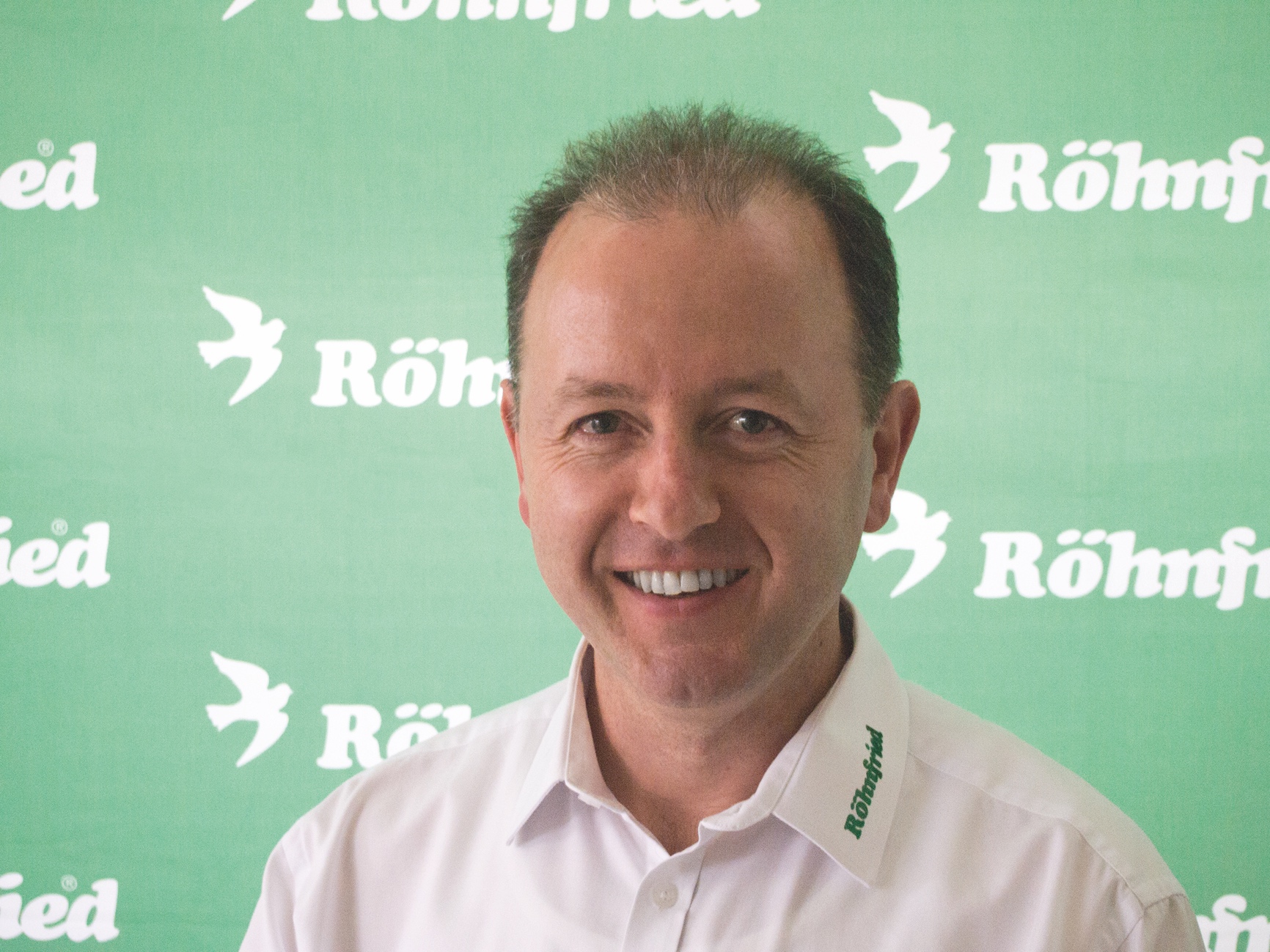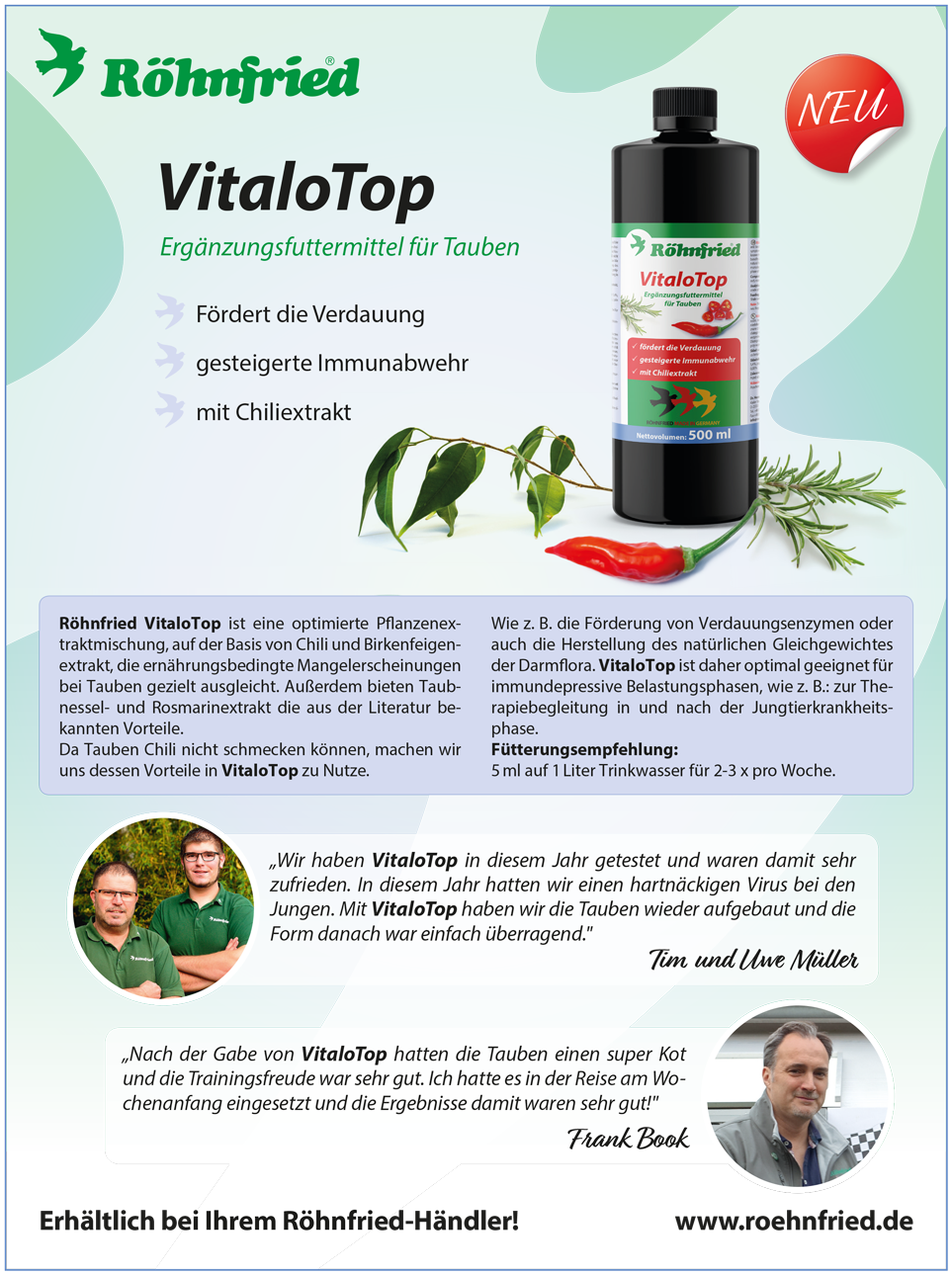Vaccinations – by Alfred Berger…
Jeder Taubenzüchter will Tauben haben, die sehr gute Flug- und Aufzuchtleistungen erreichen. Es gibt viele Faktoren, die diese beeinflussen, die meisten davon sind züchterabhängig. Taubenqualität (richtige Selektion), Qualität des Schlages, Motivation, Training oder Schlagmanagement spielen hier eine große Rolle. Alle diese Faktoren sind jedoch wertlos, wenn die Gesundheit der Tauben nicht gegeben ist. Die besten Tauben können keine Topform bilden, wenn sie an Parasiten oder einer Infektion leiden. Neben richtiger Hygiene und Ernährung sind Impfungen eine der wichtigsten Maßnahmen, um einer Infektionskrankheit vorzubeugen. Ein Impfplan sollte die Basis in jedem Taubenschlag sein. Der Zeitpunkt der Impfungen im Jahresversorgungsplan ist von großer Bedeutung. Außerdem ist es wichtig, wie die Tauben auf die Impfungen vorbereitet werden. Das bedeutet, dass sie von bester Gesundheit sein sollten und keine Krankheitssymptome zeigen. Deshalb müssen die Tauben vor Impfungen auf Parasiten behandelt werden (idealerweise 2-3 Wochen vorher). Weiterhin sollte ihre natürliche Abwehrkraft unterstützt werden. Großer Stress, wie z.B. schweres Training oder Absetzen, sollte kurz vor und nach dem Impfen vermieden werden.
PMV vaccinations year plan
When the pigeons can not be examined at the vet on coccidia, trichomonas and worms, we recommend the following plan:
1. old birds be vaccinated in a resting period. That means between moulting and breeding season, but no later than 3 weeks before the first training flight pending. If the pigeons are paired up, you should take the following supply concept:
• 6 weeks before mating - Trichomonadenbehandlung for 5-7 days + simultaneously Entrobac
• 4 weeks before mating Ro 200 Ready + Immunbooster + Moorgold
• 3 weeks before mating paramyxovirus vaccination
Vaccinating three weeks before mating ensures a high degree of transfer of antibodies to the boy. The parasite treatment prevents breeding disorders and prevents infection of young pigeons. Entrobac, Jungtierpulver and RO Ready strengthen the natural defenses and vitality of pigeons.
2. Jungtauben should be vaccinated within the first year of life always twice. It is particularly important to ensure the best care and rest of the boys even before the vaccination. If the parents were well prepared for the breeding and the boys and their droppings look good, you usually have to perform any parasite. The low-grade infection of trichomoniasis or coccidia stimulate's own immune system to develop, and thus it has a positive impact on the health of the pigeons. However, it makes sense, the risk of infection with Avidress to reduce and Entrobac to give to offer a prevention against facultative / potentially pathogenic agents immediately after weaning.
In our view, there are two vaccine concepts in young pigeons:
• First dose 5 days before weaning. But the pigeons must not be younger than 3 weeks old. The second dose is repeated 3-4 weeks after weaning.
Or
• First dose conduct a week after weaning when the pigeons have already got used to their new surroundings. After that, the vaccine after 3-4 weeks should be repeated.
• In any case, one should not vaccinate and simultaneously settle the boys. The separation from parents and moving into the new environment is always a great stress for the youngsters and leads to a weakening of the immune system.
When the boys ailing after stopping for some reason, one should delay vaccination at 1-2 weeks. However, it is important that the second dose will be given before the pigeons have been training intensively and pull. 4-5 days before and after vaccination, we recommend Immunbooster Entrobac + + Moorgold to give over the food to stimulate the immune system. One must be aware that only properly vaccinated pigeons can develop sufficient immunity and that a good Impfvorbereitung can protect the birds from potential negative effects.
Her Alfred Berger
-Geschäftsführer Röhnfried-
Advertising:
 They buy products here…(click)
They buy products here…(click)





